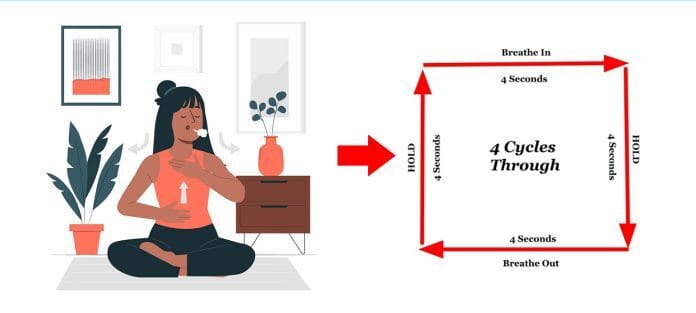Hey fitness nerds!
Thank you all {{active_subscriber_count}} of you!
I used to think more gym time meant better results.
Then I started prioritising 8 hours of sleep, and my gains doubled in three months. Sleep changed everything.
Don’t forget to tune in tomorrow, I have a special edition planned where I go into detail about my new fitness and nutrition routine and how I structure it myself.
Read 🔽 below!
💪
IN LESS THAN 10 MINUTES WE WILL COVER:
Weekly Insights:
Sleep for Fitness: Routines That Boost Energy and Recovery
Article Explained Simple: How Sleep Powers Muscle Growth
3 Tips for Pantry Proteins for Nights You Did Not Plan Dinner
Healthy Crispy Honey-Garlic Chicken Thigh Rice Bowls with Charred Broccoli Recipe
Sleep for Fitness: Routines That Boost Energy and Recovery

Your body does not build muscle in the gym.
The gym breaks down muscle tissue. Your body repairs and builds muscle while you sleep.
This happens during deep sleep stages when your body releases growth hormone. This hormone acts like a construction crew repairing the microscopic tears created during your workout.
Without enough sleep, your muscles never fully recover.
You show up to the gym still damaged from yesterday. Your performance drops. Your strength plateaus. The cycle continues until injury or burnout stops you completely.
Research shows that athletes getting 7 to 9 hours of sleep perform better in every measure. Strength increases. Endurance improves. Reaction time sharpens. The difference between 6 and 8 hours is massive.
Sleep deprivation reduces protein synthesis by up to 18 percent.
Protein synthesis is how your body builds new muscle tissue. Less synthesis means slower gains regardless of how much protein you eat. Your body simply cannot use the nutrients properly without adequate rest.
Your energy stores depend entirely on sleep quality.
During deep sleep, your body replenishes glycogen in your muscles. Glycogen fuels every rep, every sprint, every movement. Low glycogen means weak workouts and quick fatigue.
One night of poor sleep depletes these stores. Multiple nights of bad sleep leaves your tank empty. You feel weak because you are running on fumes.
Hormonal balance requires quality sleep.
Testosterone production happens mostly during sleep. This hormone drives muscle growth and fat loss. Men who sleep less than 5 hours produce 15 % less testosterone than those getting 8 hours.
Cortisol, the stress hormone, increases with sleep deprivation. High cortisol breaks down muscle tissue for energy. Your body literally eats your muscles when you skip sleep.
Sleep debt accumulates faster than most people realise.
Missing one hour per night adds up to a full night of lost sleep by the end of the week. Your body keeps track. Recovery suffers. Performance declines. Injuries become more likely.
Creating a sleep routine matters more than sleep aids.
Your circadian rhythm needs consistency. Going to bed at the same time programs your body to prepare for sleep. Waking at the same time reinforces this pattern.
Your bedroom environment controls sleep quality.
Temperature makes the biggest difference. Your body needs to cool down for deep sleep. Keep your room between 60 and 67 degrees. Warmer temperatures disrupt sleep cycles and reduce time in deep sleep.
Darkness triggers melatonin production. This hormone signals your body to sleep. Even small amounts of light suppress melatonin. Blackout curtains or an eye mask solve this problem.
Blue light from screens blocks melatonin release for hours. Your phone, tablet, and TV all emit this sleep disrupting light. Stop screen time 2 hours before bed for better sleep quality.
Pre sleep routines signal your body to wind down.
Reading reduces stress and prepares your mind for rest. Light stretching releases muscle tension. Taking a warm shower raises body temperature, then the cooling effect afterward promotes sleep.
Caffeine has a half life of 6 hours.
That afternoon coffee at 3pm still affects you at 9pm. Your body metabolises caffeine slowly. Even if you fall asleep, caffeine reduces deep sleep quality. Cut off caffeine by early afternoon.
Training time affects sleep quality.
Intense workouts within 3 hours of bedtime raise core temperature and adrenaline. Your body needs time to calm down before sleep. Morning or afternoon training works better for most people.
Nutrition timing impacts sleep and recovery together.
A small protein rich snack before bed provides amino acids for overnight muscle repair. Your body continues building muscle for hours after you fall asleep. Casein protein digests slowly, feeding this process all night.
Tracking sleep reveals patterns most people miss.
Poor recovery days often trace back to bad sleep 2 nights earlier. Your body delays showing the effects. Consistent tracking helps identify your optimal sleep duration.
A W-2, a Laundromat Owner & a Billionaire Walk Into a Room…
NOVEMBER 2-4 | AUSTIN, TX
“Almost no one in the history of the Forbes list has gotten there with a salary. You get rich by owning things.” –Sam Altman
At Main Street Over Wall Street 2025, you’ll learn the exact playbook we’ve used to help thousands of “normal” people find, fund, negotiate, and buy profitable businesses that cash flow.
Tactical business buying training and clarity
Relationships with business owners, investors, and skilled operators
Billionaire mental frameworks for unlocking capital and taking calculated risk
The best event parties you’ve ever been to
Use code BHP500 to save $500 on your ticket today (this event WILL sell out).
Click here to get your ticket, see the speaker list, schedule, and more

Fitness and health enthusiasts - We have a lot of things in store for you!
Check out busybody.io - and join the waitlist for our brand-new AI health app.
Article of the Week
Article Explained Simple: How Sleep Powers Muscle Growth
The research revealed that deep sleep stages trigger the highest levels of growth hormone release. This hormone coordinates the entire repair process in your muscles.
During NREM sleep, your body increases protein synthesis rates by 300 % compared to waking hours. Your muscles literally rebuild three times faster while sleeping.
The study found that sleep deprivation after exercise reduced recovery markers by 40 percent. Participants who slept poorly showed elevated inflammation and delayed muscle repair for days.
Blood tests showed that one night of total sleep deprivation decreased myofibrillar protein synthesis. This specific type of protein forms the contractile elements of muscle fibres. Less synthesis means weaker muscles regardless of training intensity.
Glycogen replenishment happened almost entirely during sleep. Muscles stored minimal glycogen during waking hours, even with proper nutrition. The sleeping state activates enzymes needed for glycogen storage.
Anti inflammatory cytokines released during sleep reduced muscle soreness and damage markers. Participants getting 8 hours recovered faster than those getting 6 hours.
Fascinating Fact:
Growth hormone release during deep sleep can be 10 to 20 times higher than during waking hours. This makes sleep the most powerful natural recovery tool available.
We have a new 1 referral reward for all of you. This one has made my life 12 times easier and significantly improved my health. Best thing, it saves me $227 each month.
Become an email marketing GURU.
Join us for the world’s largest FREE & VIRTUAL email marketing conference.
Two full days of email marketing tips & trends, famous keynote speakers (Nicole Kidman!), DJ’s, dance contests & networking opportunities.
Here are the details:
100% Free
25,000+ Marketers
November 6th & 7th
Don’t miss out! Spots are LIMITED!
I want in! (US attendees only!)
3 Breathing Resets to Calm Down
Your breath controls your nervous system faster than any other method.
These three techniques activate your parasympathetic nervous system, shutting down stress responses immediately.

Box Breathing
Breathe in for 4 counts. Hold for 4 counts. Breathe out for 4 counts. Hold empty for 4 counts.
Repeat this cycle 5 times. Military personnel use this technique before high stress situations.
It works because the equal timing balances oxygen and carbon dioxide levels.
Navy SEALs rely on this method in combat situations.
4-7-8 Breathing
Breathe in through your nose for 4 counts. Hold your breath for 7 counts. Exhale completely through your mouth for 8 counts.
The extended exhale activates your vagus nerve. This nerve signals your body to relax. One cycle drops the heart rate noticeably.
Do 4 complete cycles. This technique works especially well before bed.
Diaphragmatic Breathing
Place one hand on your chest and one on your belly. Breathe deeply so only your belly hand moves.
Your chest should stay relatively still. This engages your diaphragm properly.
Shallow chest breathing keeps you in stress mode.
Practice for 2 minutes. This resets your entire breathing pattern.
Crispy Honey-Garlic Chicken Rice Bowls with Broccoli Recipe (makes 4 servings)
Chicken thighs stay juicy and pack more flavour than breasts.
The crispy skin technique makes restaurant-quality results at home.
This recipe was created in 2 minutes with the BusyBody App. Click the button for free access to the app.

Macros per Serving
Total Calories: 480 kcal
Protein: 38 g
Carbohydrates: 45 g
Sugars: 12 g
Fat: 15 g
The Ingredients
For the chicken:
600 grams boneless skinless chicken thighs (about 1.3 lbs)
1 tablespoon olive oil
Salt and pepper to taste
For the honey-garlic sauce:
3 tablespoons honey
4 cloves garlic, minced
2 tablespoons low sodium soy sauce
1 tablespoon rice vinegar
1 teaspoon ginger, grated
For the bowls:
300 grams uncooked jasmine rice (about 1.5 cups)
400 grams broccoli florets (about 4 cups)
1 tablespoon sesame oil
1 teaspoon sesame seeds for garnish
2 green onions, sliced
The Instructions
Cook the rice according to package directions. Set aside and keep warm.
Pat chicken thighs completely dry with paper towels. Season both sides with salt and pepper.
Heat olive oil in a large skillet over medium high heat. Place chicken smooth side down. Cook without moving for 6 minutes until golden brown and crispy.
Flip chicken and cook another 5 minutes until internal temperature reaches 165 degrees.
While chicken cooks, whisk together honey, garlic, soy sauce, vinegar, and ginger in a small bowl.
Remove cooked chicken to a plate. Pour sauce into the same pan. Simmer for 2 minutes until slightly thickened.
Return chicken to pan and coat with sauce. Cook 1 minute more.
Toss broccoli with sesame oil, salt, and pepper. Spread on a baking sheet. Broil for 5 to 7 minutes until edges are charred and tender.
Slice chicken into strips. Divide rice among 4 bowls. Top with sliced chicken, charred broccoli, extra sauce, sesame seeds, and green onions.
Fact-based news without bias awaits. Make 1440 your choice today.
Overwhelmed by biased news? Cut through the clutter and get straight facts with your daily 1440 digest. From politics to sports, join millions who start their day informed.
Make your dream of working online a reality and start a newsletter - join beehiiv for free and don’t pay any renewal fees until you grow your subscriber base >2500 subscribers.
I’ve personally tried plenty of other platforms, and Beehiiv is hands down the best and easiest to use.





